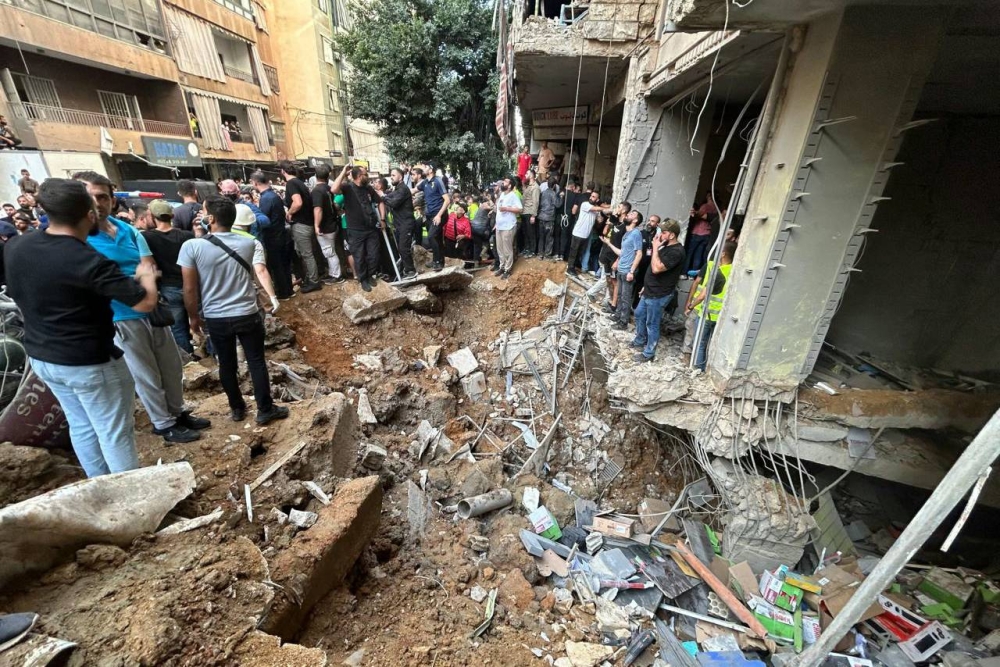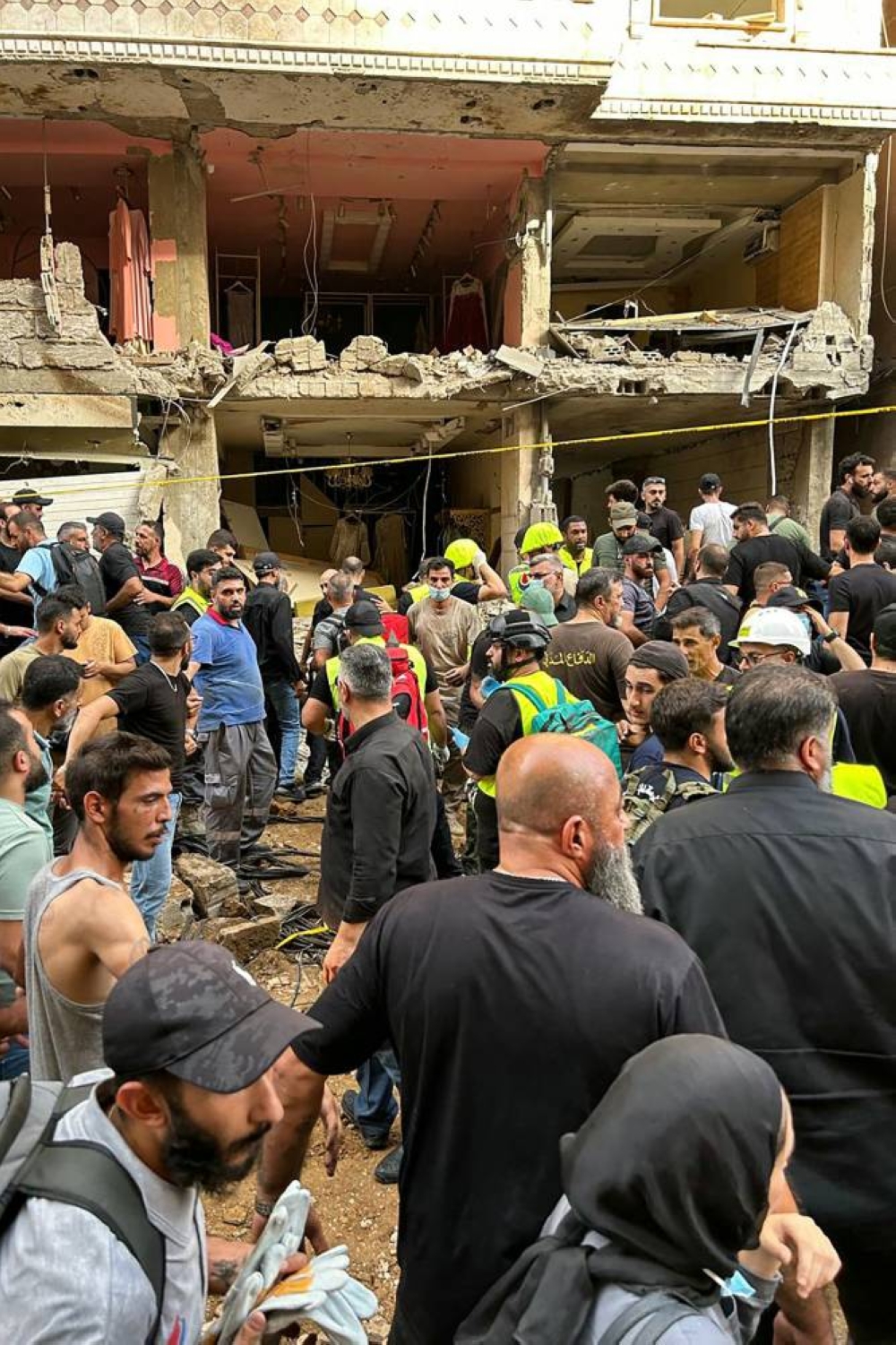Lebanon's health ministry Friday said an Israeli strike on Beirut's southern suburbs killed 12 people and wounded 66 others, nine of whom were in critical condition. Rescue teams were searching for people under the rubble of two buildings, the country's civil defence service said.
Local broadcasters showed groups of people gathered near the site, and reported they were searching for at least 10 people who had been in the vicinity and were still missing, most of them children. Drones were still flying over Beirut's southern suburb hours after the strike.
The Israeli military and a security source in Lebanon said Ibrahim Aqil, a top Hezbollah commander, had been killed along with other senior members of an elite Hezbollah unit in the airstrike, sharply escalating the year-long conflict between Israel and the Iran-backed group.
Tens of thousands of people have been evacuated from homes on both sides of the Israel-Lebanon border since Hezbollah began rocketing Israel in what it says is sympathy with the Palestinians in parallel to the war in Gaza.
Israel, which last fought an all-out war against Hezbollah 18 years ago, has said it will use force if necessary to ensure its citizens can return.
"We are not afraid, but we want a solution. We cannot continue with the country like this," said Alain Feghali, a resident of Beirut who spoke to Reuters. "War? I don't know if it started or not, but nothing is reassuring. It is clear that the two sides will not stop."
Hezbollah did not make any official statements on the strike, and did not immediately confirm that Aqil was targeted or killed.
The UN Special Coordinator for Lebanon, Jeanine-Hennis Plasschaert, said Friday's strike in a densely populated area of Beirut's southern suburbs was part of "an extremely dangerous cycle of violence with devastating consequences. This must stop now."
The strike marked the second time in less than two months that Israel has targeted a leading Hezbollah military commander in Beirut. In July, an Israeli airstrike killed Fuad Shukr, the group's top military commander.
The Israeli military reported warning sirens sounded in northern Israel following the Beirut strike. Israeli media reported heavy rocket fire in northern Israel.
Hezbollah said it had twice fired Katyusha rockets at what it described as the main intelligence headquarters in northern Israel "which is responsible for assassinations".
White House national security spokesperson John Kirby said he was not aware of any Israeli notification to the United States before the Beirut strike, adding Americans were strongly urged not to travel to Lebanon, or to leave if they are already there.
However he added that, "war is not inevitable ... and we're going to continue to do everything we can to try to prevent it."
The current conflict between Israel and Hezbollah, ignited by the Gaza war, has intensified significantly this week.
On Thursday night, the Israeli military carried out its most intensive airstrikes in southern Lebanon since the conflict erupted almost a year ago.
The conflict between Israel and Hezbollah is the worst since they fought a war in 2006. Tens of thousands of people have had to leave homes on both sides of the border.
While the conflict has largely been contained to areas at, or near the frontier, this week's escalation has heightened concerns that it could widen and further intensify.
Israeli newspapers reported that due to the situation, Netanyahu had delayed his trip to New York for the United Nations General Assembly next week by a day and would arrive on Wednesday.
The Iranian embassy in Lebanon said it "condemns in the strongest terms the Israeli madness that crossed all lines with targeting residential buildings in Beirut's southern suburbs".
Region
12 killed, 66 wounded in Israeli strike on south Beirut
Top Hezbollah commander among the 12 killed

People check the damage at the site of an Israeli strike in Beirut's southern suburbs on Friday. AFP

People and first responders gather at the scene of an Israeli strike in Beirut's southern suburbs on Friday. AFP
